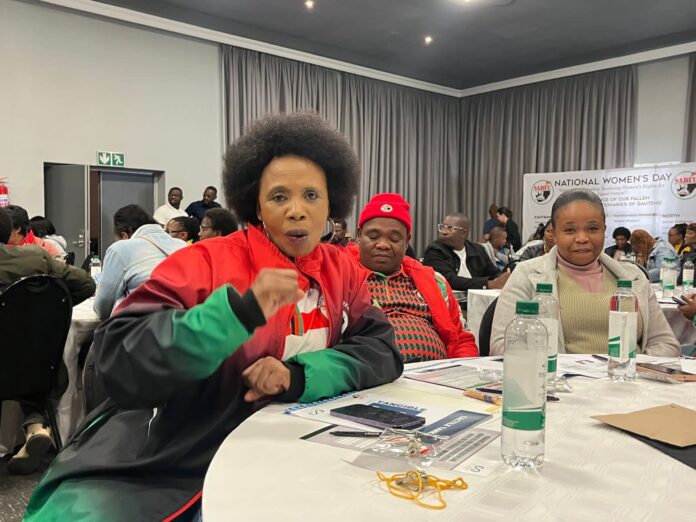Johnathan Paoli
THE South African Democratic Teachers’ Union (Sadtu), in conjunction with Bona Africa kicked off a workshop on coding and robotics for the visually impaired at the Birchwood Hotel and OR Tambo Conference Centre in Boksburg, on Thursday.
This forms part of the Teacher Union Collaboration (TUC) programme with other unions in education to complement the Department of Basic Education in training teachers on skills for a changing world.
TUC has partnered with Bona Africa to train educators teaching visually impaired and blind learners in coding and robotics. This initiative comes after almost 16 000 teachers in mainstream schools were trained in 2022.
SADTU through its Curtis Nkondo Professional Development Institute and Ubuntu Africa is training teachers from schools for the visually impaired across all nine provinces in a series of 16 workshops during September with the aim of reaching 600 teachers.
SADTU General-Secretary, Mugwena Maluleke, said that the move was motivated by the union’s commitment towards the promotion of an inclusive agenda by ensuring the development of an education system which is fully accessible to all, is equal, and is of quality.
“SADTU and the Institute, through this training, will ensure that these teachers and learners are not left behind in the teaching and learning of the skills for a changing world. We will make every effort, especially with the strengthened curriculum, to ensure that all learners benefit from innovation,” Maluleke said.
The teachers’ union said that workshops that have already been conducted in certain special schools in the Free State, KwaZulu Natal, Easter Cape and Northern Cape provinces were fully embraced by visually impaired teachers as well as students.
Tangible Africa, founded by Professor Jean Greyling, head of the Nelson Mandela University Computing Sciences Department, is an organisation that has worked with SADTU and other teacher unions in South Africa to train teachers in coding.
Bona Africa, a partnership between Tangible Africa and Bona uBuntu, has collaborated with SADTU to provide the content for the training.
Some of the challenges in teaching coding to visually impaired and blind people in South Africa include the lack of adequate infrastructure, learner teacher support materials (LTSM), basic assistive devices, and safety at the schools for the visually impaired and blind in the country.
This makes it difficult for the teachers and learners to access and use the necessary resources and tools for coding and robotics, this was highlighted at the workshop.
In addition, the lack of sufficient training and professional development for the teachers who teach coding and robotics to the visually impaired and blind learners, resulted in these teachers being marginalised in professional development initiatives, and therefore needed more support and guidance to implement coding at a school level.
According to Bona Africa, the lack of awareness and inclusion of the visually impaired and blind learners in the coding and robotics curriculum and activities could be seen as part of a digital divide that excludes these learners from the skills for a changing world, and more opportunities and innovation are needed in order to bridge this gap.
The union said the teachers will be given training and supporting materials that are accessible to the blind and will be used to implement coding at school level.
In addition, the provision for blind learners of learning kits which include tokens that are tactile and available in braille.
As it stands, there have been various software programmes established that can assist the visually impaired with accessing computers, such as screen readers, magnifiers, voice recognition, and braille displays, provided by organisations, such as Blind SA, the SA National Council for the Blind, and the SA Library for the Blind.
INSIDE EDUCATION






